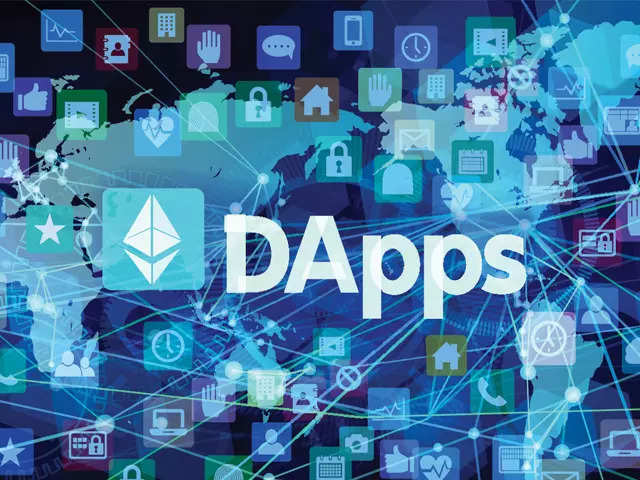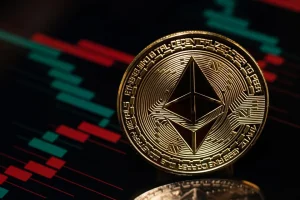Decentralized Applications, commonly known as DApps, have emerged as a promising technological innovation that has the potential to revolutionize various industries and empower communities worldwide. In the context of Africa, DApps hold particular significance due to their ability to address unique challenges faced by the continent and unlock new opportunities for social and economic development.
What are DApps?
DApps are software applications built on decentralized networks, typically utilizing blockchain technology. Unlike traditional applications that rely on a centralized authority for control and data management, DApps operate on a decentralized infrastructure, ensuring transparency, security, and autonomy. They are designed to enable direct peer-to-peer interactions, facilitate trustless transactions, and eliminate the need for intermediaries.
Key Characteristics of DApps
- Decentralization: DApps operate on decentralized networks such as blockchain, ensuring that no single entity has control or ownership over the application. This decentralization fosters trust, transparency, and resilience.
- Transparency: DApps leverage the transparency provided by blockchain technology, allowing all participants to access and verify transactions and data. This transparency minimizes the potential for fraud and corruption.
- Security: The use of cryptographic algorithms and consensus mechanisms in DApps ensures a high level of security, making them resistant to hacking and unauthorized access. This aspect is particularly crucial in regions where data security is a concern.
- Trustless Interactions: DApps enable direct peer-to-peer interactions without the need for intermediaries, eliminating the reliance on third parties for trust. Smart contracts, a key feature of DApps, ensure that transactions are executed automatically based on predefined conditions.
- Tokenization: Many DApps incorporate their native tokens, representing digital assets that can be used for various purposes within the application. These tokens often enable incentives, rewards, and governance mechanisms, fostering community participation and engagement.
Benefits of DApps for African Communities
- Financial Inclusion: DApps can address the challenges of financial exclusion by providing access to decentralized financial services. Through DApps, individuals can access banking, lending, and remittance services without relying on traditional intermediaries, thereby overcoming barriers such as high fees, limited access to banking infrastructure, and cumbersome processes.
- Transparent Governance: DApps can facilitate transparent and inclusive governance models by leveraging blockchain’s immutability and transparency. This can enhance accountability, reduce corruption, and enable community participation in decision-making processes, particularly in areas where governance structures may be weak or lacking.
- Economic Empowerment: DApps have the potential to unlock economic opportunities for individuals and businesses by enabling peer-to-peer transactions, decentralized marketplaces, and crowdfunding platforms. This can facilitate entrepreneurship, job creation, and economic growth within communities.
- Supply Chain Transparency: DApps can enhance supply chain management by providing transparency and traceability. This is particularly relevant for industries such as agriculture and fair trade, where DApps can enable farmers and producers to showcase their products’ origin, quality, and sustainability, thereby increasing trust and opening up access to broader markets.
- Intellectual Property Protection: DApps can leverage blockchain’s decentralized and immutable nature to protect intellectual property rights. Artists, creators, and innovators can utilize DApps to securely register and track ownership of their work, ensuring fair compensation and minimizing copyright infringement.
Looking Ahead: Embracing the Potential of DApps in Africa
As Africa continues its journey toward technological advancement and digital transformation, the adoption of DApps holds tremendous potential to address critical challenges and uplift communities across the continent. By fostering financial inclusion, transparent governance, economic empowerment, supply chain efficiency, and intellectual property protection, DApps can contribute to sustainable development and empower African communities to shape their own future.
As technology evolves and more DApps are developed, it is essential for governments, organizations, and individuals in Africa to embrace this innovative paradigm and create an enabling environment for their growth and adoption. By harnessing the power of DApps, Africa can unlock new opportunities, bridge societal gaps, and build a prosperous and inclusive future for its people. Some potential impactful advantages of DApps in African communities would be:
- Education and Skills Development: DApps can revolutionize education and skills development by providing decentralized platforms for learning, certification, and skill validation. Through DApps, individuals in remote or underserved areas can access quality educational resources, participate in online courses, and earn verifiable credentials, thereby leveling the playing field and unlocking opportunities for personal and professional growth.
- Healthcare and Access to Services: DApps can address healthcare challenges and improve access to essential services in Africa. By leveraging blockchain technology, DApps can enable secure storage and sharing of medical records, facilitate telemedicine solutions, and streamline healthcare supply chains. This can enhance the efficiency of healthcare delivery, reduce costs, and improve patient outcomes, especially in areas with limited infrastructure and healthcare resources.
Moreover, embracing the potential of DApps requires collaboration and partnerships among stakeholders in the African ecosystem. Governments can play a vital role by creating supportive regulatory frameworks, fostering innovation, and investing in infrastructure to enable widespread DApp adoption. Organizations and developers can contribute by building user-friendly DApps that cater to specific community needs, while also prioritizing scalability and usability. Lastly, education and awareness campaigns are crucial to ensure that individuals understand the benefits and usage of DApps, empowering them to take advantage of the opportunities presented by this emerging technology.
DApps represent a paradigm shift in software development, offering unique benefits that can transform African communities. By leveraging decentralized networks, transparency, security, and trustless interactions, DApps have the potential to drive financial inclusion, transparent governance, economic empowerment, supply chain efficiency, and intellectual property protection. Embracing the potential of DApps and creating an enabling environment for their adoption will pave the way for a brighter future, where African communities can thrive and shape their own destiny.
How To Exchange Cryptocurrencies For Fiat Here At DartAfrica
Here at DartAfrica, we provide an effortless and highly beneficial way for you to convert your crypto assets to fiat that you can withdraw to your local bank account instantaneously. Over a very short time, we have been able to drive an innovative and ever-expanding cryptocurrency trading platform that aims to make trading pleasant and easy for users in Ghana and Nigeria (for the time being) to sell cryptocurrencies for fiat. We at Dartafrica offer unparalleled support for our customers so they can exchange popular cryptocurrencies like USDT, USDC, ETH, and BTC, plans have been in motion already to increase this selection in order to cater to a wide range of consumers with various preferences. One of the many potential benefits of exchanging your cryptocurrency for Naira or Cedis with us at DartAfrica is the fact that there are no transaction fees, unlike other exchange platforms or traditional banking institutions.
Our user-friendly platform provides consumers a simple navigation, a quick and secure way to perform transactions. To efficiently use DartAfrica:
- Visit our website to register in just a few simple steps.
- Create a transaction pin by logging into your account and selecting “Security” to authorize withdrawals.
- For instructions on creating a local bank account, click “Account Details”.
- Choose the coin you want to deposit by clicking “Sell Coins.” Put the USD amount (at least $20).
- By selecting “Sell Now,” you will be given a QR code and wallet address to deposit the equivalent amount you intend to sell. After two block confirmations, the corresponding amount of fiat is transferred into your account. You may track your transaction in the “Trades” area until the deposit is complete. You can see this on your “Dashboard.”
- To withdraw money to the account you’ve previously set up in step 3, click “Withdraw funds,” then enter the desired amount. Without any additional fees, your local bank receives a quick credit.
By utilizing our services at DartAfrica, you can enjoy a seamless and efficient way to exchange cryptocurrency for fiat, benefiting from a user-friendly platform, quick transactions, and the absence of transaction fees. Experience the convenience and reliability of DartAfrica for all your crypto-to-fiat conversions.





